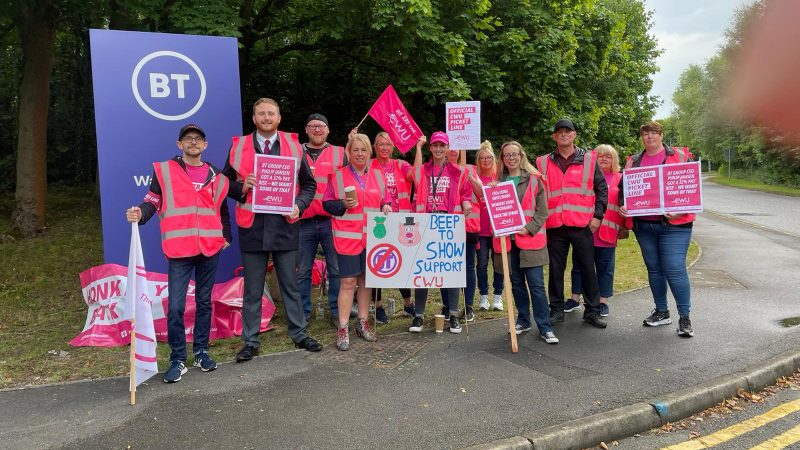'The Labour Party and the labour movement came into being through protest, some of it illegal at the time as our commemorating the Tolpuddle Martyrs testifies. '

Diane Abbott is the Labour MP for Hackney North and Stoke Newington
The revival of trade union militancy is very welcome. For too long ordinary people have been pushed around and made to pay for every conceivable crisis, none of them of their own making.
That goes for the global recession after the banking crisis of 2007 to 2008, the government’s disastrous response to the Covid crisis and now the surge in inflation and associated plunge in living standards.
But as night follows day, large sections of our media and the Tory party as a whole begin to demonise workers, their unions and their leaders as soon as they stand up for themselves. That is disgraceful, but not surprising.
What is astonishing is that the Labour leadership has gone along with this nonsense. Wholly unnecessary divisions have been created when the focus should have been on the Tories tearing themselves apart. A rift has been opened up with our major trade union backers. And an inevitable but damaging U-turn has followed because very many Labour MPs cannot accept that we are becoming a party that opposes industrial action.
Apparently, we are also ‘not a party of protest, but of government’, which is a ridiculous claim. We have always been at our strongest when we are both. The Labour Party and the labour movement came into being through protest, some of it illegal at the time as our commemorating the Tolpuddle Martyrs testifies.
Every social and political advance ever made in this country was won wholly or in part through protest. This includes but is not confined to the abolition of slavery, women’s suffrage, universal suffrage, a woman’s right to choose, the abolition of Section 28, and of course the always contested right to strike.
So, of course Labour is the party of protest for social change and a party of government to implement that change. That also means there is a great onus on us to be crystal clear about what we intend to do in office, and to stick to our principles.
When Keir Starmer ran for leader he produced a very slick video about his direct involvement in a series of major industrial disputes. If we have now become a party whose leadership opposes industrial action, or at the very least wants to keep it arm’s length, the new Tory leader will play it on loop during an election campaign, claiming this is the ‘real Starmer’, however false the claim may be.
For someone with a background in human rights law, support for strike action should be second nature. The Labour government was the first one internationally to ratify the International Labour Organisation’s convention on the right to union organisation and collective bargaining in 1948. Labour supported the UN’s covenant on economic, cultural and social rights in 1996, which reinforced existing rights. There had already been cross-party support for the Council of Europe’s social charter in 1961 which did the same.
International human rights lawyers and organisations already pointed out the severe curbing of these rights as austerity was imposed in 2010. Since then, we have had imposed pay freezes, zero-hours, ‘fire and rehire’, and the P&O scandal. The Tories now want to double down on all this by effectively abolishing the right to strike.
Instead of attacking workers striking for decent pay and conditions and against job losses and their supporters, we should be attacking the government for these outrageous series of attacks on ordinary people. That would be the right thing to do.
To reach hundreds of thousands of new readers we need to grow our donor base substantially.
That's why in 2024, we are seeking to generate 150 additional regular donors to support Left Foot Forward's work.
We still need another 117 people to donate to hit the target. You can help. Donate today.



